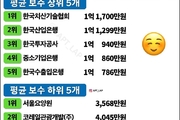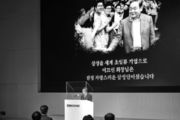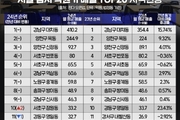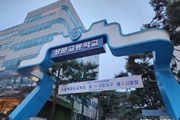![Kyung Kye-Hyun, the CEO of the Device Solutions business at Samsung Electronics, [LinkedIn] Kyung Kye-Hyun, the CEO of the Device Solutions business at Samsung Electronics, [LinkedIn]](/data/photos/202305/663_645_5225.jpg)
[NewsSpace=JeongYoung Kim] Kyung Kye-Hyun, the CEO of the Device Solutions business at Samsung Electronics, has set a goal to catch up with Taiwan's TSMC, the world's leading foundry (semiconductor contract manufacturer), within five years.
Speaking at a lecture titled "Samsung Semiconductor's Dream and Happiness: Sustainable Future" held at KAIST in Daejeon on May 4th, Kyung stated that "To be frank, Samsung's foundry technology is one to two years behind TSMC's, but we can surpass it once TSMC enters the 2nm process." He added, "We can exceed TSMC within five years."
Kyung's confidence is based on Samsung's gate-all-around (GAA) technology, which the company applied first in the world from the 3nm process. GAA is a new technology that enables precise control of the current flow in semiconductors and allows sufficient amounts of electricity to flow. By utilizing GAA process, Samsung can produce chips that are 45% smaller in size and consume 50% less power than conventional process.
Unlike Samsung, TSMC plans to use GAA technology from the 2nm process, which is expected to face difficulties in developing the process due to the introduction of the new technology. Therefore, Kyung believes that Samsung can have an opportunity to catch up with TSMC. He said, "Currently, Samsung's 4nm technology is two years behind TSMC, and 3nm technology is about one year behind, but it will change once TSMC enters the 2nm process.“
Kyung Kye-Hyun,, head of DS (Device Solution) division, stressed that foundry customers are also increasing, especially in global big tech companies. "Customers are responding well to Samsung Electronics' 3nm GAA (gate all around) process," he said. "I can't say the name of the customer, but almost all companies that I know are working together." Industries predict that Google and Qualcomm will use Samsung Electronics' 3nm process.
Regarding memory semiconductor technologies such as DRAM and NAND flash, it also expressed its intention to increase packaging (post-process) technology to secure a 'super gap'. President Kyung said, "As the process of semiconductors becomes more difficult, we will eventually increase performance through packaging," adding, "We created an advanced package team in the DS sector last year and will produce meaningful results within three to four years." "Samsung Electronics' memory semiconductor business is more profitable than its competitors," he said. "Although it is weak now, we will invest generously to maintain the 'number one' position in both DRAM and NAND flash."
In the future, Samsung Electronics' memory semiconductors will be more important than NVIDIA's graphics processing unit (GPU) in artificial intelligence (AI) servers. President Kyung predicted, "By 2028, supercomputers centered on memory semiconductors will be available."
At the lecture hall, questions were also asked about "the impact of Samsung Electronics from the U.S. sanctions on Chinese semiconductors." "We need to get permission to invest in the Xi'an plant in China, but I don't think we're putting pressure on the entire business," President Kyung said. "We'll try to make the crisis an opportunity." In order to attract engineers, he explained, "We will move R&D personnel working in Pyeongtaek, Gyeonggi Province to Dongtan."
President Kyung explained to students that "continuous challenges" are possible regarding Samsung Electronics' organizational culture. "Samsung Electronics' DS division aims to create technologies that are not in the world," he said. "The culture of the DS sector is 'psychological safety' that allows semiconductor engineers to decide on their own as the main characters and guarantees freedom to fail."
Starting with KAIST on the same day, Samsung Electronics will continue to give lectures at other schools in the future. Samsung Electronics is actively fostering semiconductor talent by operating semiconductor contract departments at seven domestic universities, including KAIST. Contract students will be guaranteed a job in Samsung Electronics' semiconductor sector after graduation.
Samsung Electronics Chairman Lee Jae-yong also emphasized the importance of investment and fostering talent to secure "super-gap technology," saying, "It is a difficult situation, but there should be no shaking in fostering talent and future technology investment."























